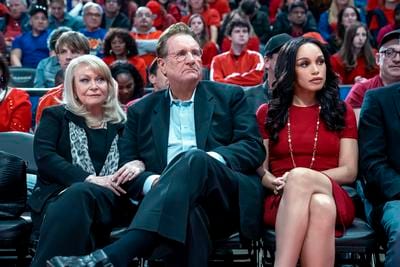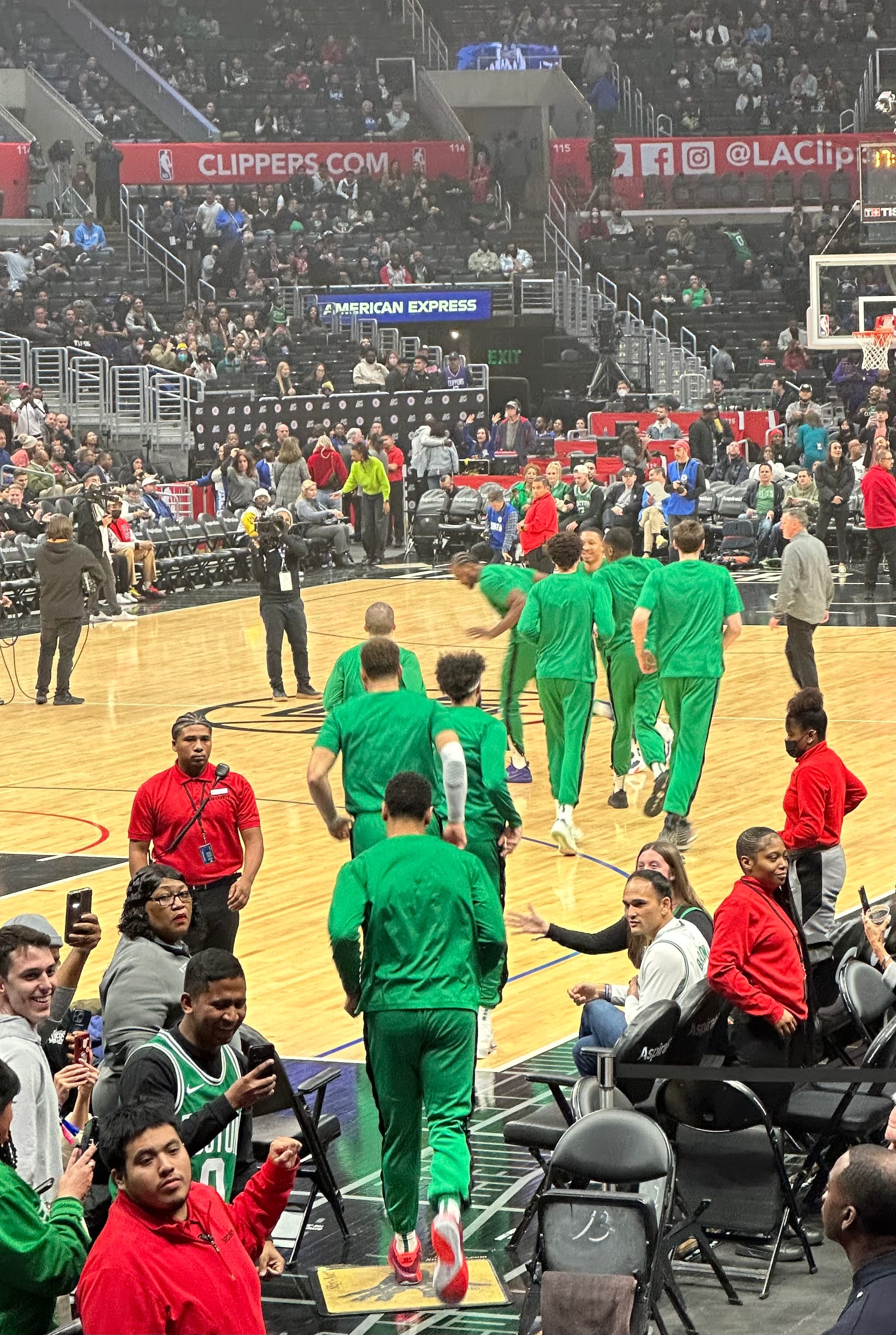The Long Winter of the Clippers

I commence this post wondering if my esteemed readers actually give a good goddamn about The Los Angeles Clippers of the National Basketball Association.
That’s right, they’re not the Lakers. But neither are the Lakers these days.
Hang in with this Inside Hoops part for just a moment and we’ll get to the quite fun and gossipy fare: the recently concluded six-part FX (and Hulu) streaming series, “Clipped,” set in a haywire 2014 implosion by team owner Donald T. Sterling.
Greg Braxton of the Los Angeles Times set the stage for his take on the series as it began to air in early June:
Armed with a winning record, several top players and high hopes, the Los Angeles Clippers romped into the NBA playoffs for the fourth time in five seasons this year, but the end result was the same as ever: Plagued by injuries, the Clippers fell in the first round to the Dallas Mavericks, extending their long-standing reputation as a chronically cursed team.
Clipped” is based on the ESPN 30 for 30 podcast “The Sterling Affairs.” Further showing the path to streaming were a pair of documentaries on O.J. Simpson’s disastrous life story, and notably the recent, showy, “Winning Time: The Rise of the Lakers Dynasty.” In arising from a deeply reported podcast (by ESPN writer Ramona Shelburne), it recalls similarly wised-up podcast-to-TV shows like “Gaslit” or “The Dropout,” sooner hewing to societal commentary than sensationalism.
The Clippers Curse is a hard tag to efface. And while tech billionaire Steve Ballmer has sought to upgrade the “product” (and built them a dream of an arena in nearby Inglewood), the future took a funky turn when Paul George, arguably the heart of the team who was brought on two summers ago--in a trade they made with a painful expenditure of future draft choices--decided to go play in Philadelphia for tens of millions more.
Almost lost you there, right? Indeed, if the NBA is about anything to Middle America, it’s about the shuffling of what certain fans would call “spoiled millionaires”.
The counter would be—and this is very much the thesis of “Clipped”—that the NBA owners are spoiled billionaires with a plantation mentality. You needn’t look much further than the Sterling duo’s bigoted real estate practices (he’s confessed-covfefe’d--to using Trump as a role model). The former personal injury lawyer turned real estate baron wasn’t fully outed as a racist before the events shown in the series, though he had already been targeted with lawsuits from the Department of Justice, for housing discrimination as a landlord, and sued by basketball legend Elgin Baylor, for alleged mistreatment while serving as the team’s general manager.
It's hard to judge the athletes knowing that most player’s careers are short, averaging 4.5 years. Before announcing his departure, George got a dap from Clippers star Kawhi Leonard—since the main point of George coming to the Clips in 2019 was to join Leonard and try for a championship. “I’m leaving my boy,” he said of Leonard, who’s now left to fit in with ball-hogging star James Harden, with the coming season’s team facing every chance of getting chewed up early in the playoffs.
Just to personalize my own stabs at Clippers fandom, I saw George deliver an inspirational moment on December 12, 2022, when he and Leonard were simultaneously healthy for a change and reunited on the court versus the dreaded and growingly potent Celtics.
I brought my college-age son, and amidst the hullabaloo the Clippers offer unceasingly every game—the chaos and decibel count and cannonaded swag will leave you either giddy or rushing off for an emergency encephalogram—we had seats right over the court entrance the Celtic used, thus this pic by me taken just before game time:

George dropped 26 on the Celts stars Tatum and Brown and as we made our way to the Clippers presser, George finished a TV chat and standing his full 6’9”, hollered out a tribute to his in many ways underprivileged hometown an hour north: “Stand up, Palmdale!”
His proud working-class parents (more secure, even before the millions flowed, than the 15+ percent of Palmdale’s 165,000 citizens still living below the poverty line) were at courtside humbly attending.
It was a downright inspirational moment.
But money changes everything.
Still less heartwarming is the saga told in “Clipped,” recounting the downfall of Sterling, who in the person of Ed O’Neill rings canny changes on his former personae as one-liner-spouting patriarchs on the early 90s “Married With Children” and “Modern Family” (2009-2020). Belligerent and squalid, he’s arresting to watchable, and demonstrates that Sterling was “Inadvertently funny [although]… mean as a snake”.
Clippers coach Doc Rivers, played with appropriate finesse and spates of anguish by Larry Fishburne, becomes our hero and compelling delivers a terse final judgment on his bosses.
The smaller roles are something of a thespians’ clinic. You may need to ponder where you’ve seen actor Kelly Aucoin, seen here as team president Andy Roeser—he was the half-demented trading genius as” Dollar Bill” among the feral pack working for Damien Lewis’s Axe in “Billions”. Similarly, and the two performances are so good only a bigger helping of screen time brings Aucoin ahead by a nose, Rich Sommer’s PR manager Seth Burton shows us a man with scruples trying not to become Sterling’s Goebbels figure.
It's a given that Jacki Weaver would find a heart in the tormented but feisty Sterling spouse, and Cleopatra Coleman is something of a discovery as the more-complex-than-expected, mixed-race Sterling mistress V. Stiviano.
Showrunner Gina Welch, who wrote major skeins of the episodes and formed a sharp team with co-writer Rembert Browne and director Kevin Bray, has an ear for a sizzling put-down as she presents a pack of near-jackals who are often delicious in their reprehensibility.
A particular nod in this tally of winning choices up and down the call sheet must go to Jason Butler Horner as Glenn Bunting (“Sugar” and “Ozark”) is handed the line that frames what Shelly Sterling learns the hard way: “This story has a girl, a tape, sports, racism, money. There is something in it for everyone.”
Leave it to Fishburne, who knew nothing of hoops world before he took the job, to sum it all up for Braxton: “This story details the construct of race and sex and privilege and the way it makes people behave. I hope that people come away with the absurdity of that structure and societal ills we still have to contend with.”


Comments ()